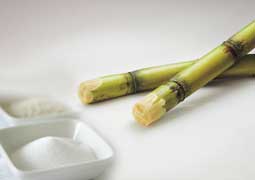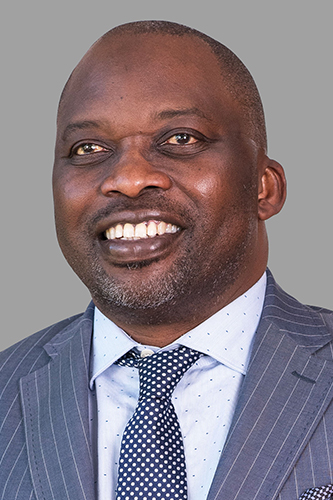
The South African sugar cane industry has experienced a sharp decline in revenue in recent years, the result of the cheap sugar imports that flooded the local market. In response to this challenge, President Cyril Ramaphosa announced during this year’s State of the Nation Address a value chain master plan for the industry to address transformation, job protection, product diversification, the implementation of the HPL and the re-capitalisation of the sector to attract new investment that will optimise its effectiveness, efficiencies and competitiveness.
The Portfolio Committee on Trade and Industry received briefings recently from a range of key stakeholders in the sugar sector on their progress with implementing the master plan. They all commended the government for this timely intervention and plans, which should sustain the industry by harnessing the competitiveness of its value chain.
The committee was told by the Deputy Minister of the Department of Trade and Industry, Ms Nomalungelo Gina, that the briefing took place at a time when sugar cane production was in a downward spiral, as sugar farming and jobs in the industry had declined by 60%. The decline is driven by declining global prices, increasing volumes of low-priced tariff-free exports, the Health Promotion Levy and the impact of Covid-19.
The department’s Chief Director of Agro-Processing, Ms Ncumisa Mcata-Mhlauli, presented the broad objectives of the master plan. Chief among them is to preserve the competitiveness of productive industry assets, to diversify to withstand competition and to restore local market and off-take commitments while ensuring that the industry restructures to be inclusive and reflective of South Africa’s demographics. Several task teams have been formed to support these strategic interventions and which will monitor and evaluate progress.
Ms Mcata-Mhlauli noted that the plan should be commended for contributing towards the 15% increase in local sales, 22% increase in direct market penetration and the 7% increase in soft-drink manufacturing and the procurement of local sugar. She told the committee that the next three months, the department aims to finalise it master plan milestones, and accelerate and up-scale intergovernmental coordination and participation of government stakeholders.
In her presentation, the Chairperson of the South Africa Sugar Association (SASA), Ms Sindi Mabaso-Koyana, told the committee that SASA is committed to the growth of small-scale sugar cane farmers and the restructuring of the industry. SASA is currently in discussions with stakeholders about what constitutes the universe of small-scale sugar cane growers.
On restructuring the industry, SASA has held more than 10 engagements with various stakeholders. “We have looked at what has work and how we can capitalise on that and what has not worked and what we do things differently,” she said. SASA has also issued a tender to enlist the service of an international restructuring expert to assist it in undertaking this task. The tender was due for submission on 5 May and the appointment will be made on 1 June.
The Chairperson of South African Sugar Millers’ Association, Mr Rolf Lutge, reported that, among other things, their task is to look at how the industry can diversify production and attract re-investment and new investment. He commended the increase in sugar demand during the pandemic, but said that the industry needed to diversify crop production to enhance its value chain beyond sugar-cane plantations.
He regretted the decline in re-investment in sugar plantations and said there is a need to recapitalise the industry, and preserve and protect it from export competition. “We also need to invest in new technologies and conduct research to exploit the greater value of our production.” This will rebuild our skills capacity following years of difficulty, characterised by reduced capital investment, he said.
The Chairperson of South African Sugar Cane Growers’ Association, Mr Rex Talmage, pleaded for government protection against cheap sugar imports that are flooding our markets. “We appeal to Members of Parliament to assist in addressing that if we were to have a sustainable and profitable sugar industry.” The association has initiated a Home Sweet Home advertising campaign on TV, billboards and social media to promote locally grown sugar products that has had over 90 views to date.
The Chief Executive Officer of the South African Farmers Development Association’s, Dr Siyabonga Madlala, decried the slow pace of transformation in the sector, caused by a huge resistance to transformation and land redistribution.
During question time, the committee asked if the government’s investment of R1 billion in the inception of the master plan has yielded any result. A representative from SASA, Mr Hans Hackmann, said that it has created job opportunities for youth and women, who now form part of the sugar cane industry.
The committee also asked the department about eSwatini’s dumping of large amounts of sugar onto the local market. Ms Mhlauli responded that political engagements are taking place with eSwatini to resolve this matter.
In his conclusion, the chairperson of the committee, Mr Duma Nkosi, emphasised the need for the industry’s role-players to diversify their products if they are to have a sustainable economic trajectory in the future.
He further stated that the committee is interested to see the progress of various task teams in bring the master plan into fruition. “We appreciate the work done thus far. A foundation has been set and there’s a need to take advantage of that.” Beyond that, he said: “We need to encourage more synergies and working relations among stakeholders to make a difference and contribute to the realisation of inclusive and economic growth of our country.”
Abel Mputing
13 May 2021

